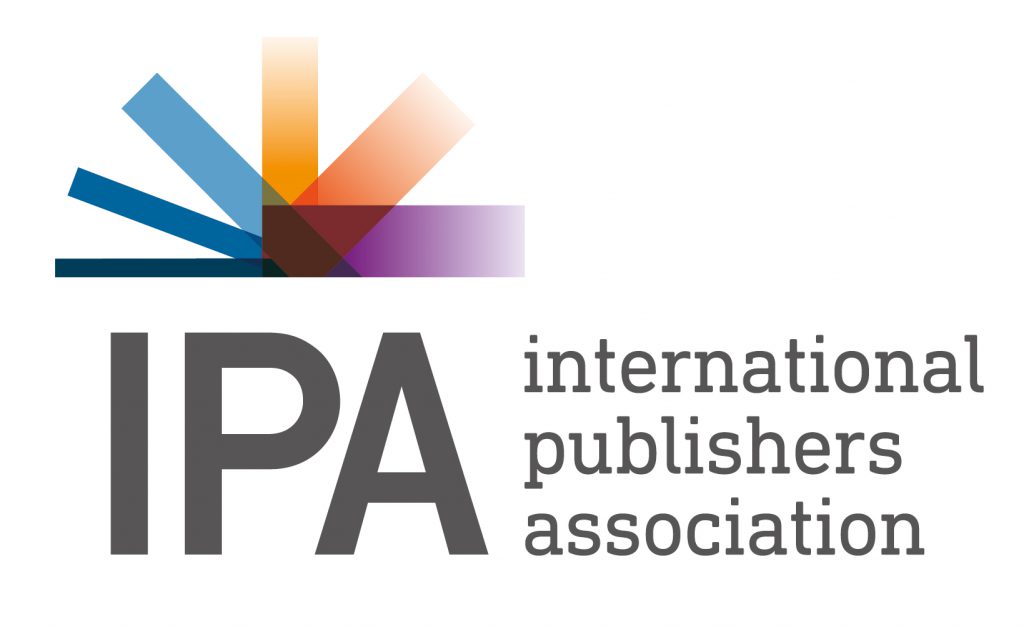The IPA adopted its public position on copyright and generative artificial intelligence in February 2024. You can read it here.
IPA has also held a series of webinars on the topic as well as partnered on events at book fairs. You can find details on these below. Some webinars are exclusively available to IPA members and their members. Do get in touch if you would like to watch one of the webinars.
18 November – AI Licensing & Fairly Trained
Licensing required for AI training purposes is simple in the digital age, and there is no excuse to ignore it. Direct and collective licensing models are ubiquitous, flexible, efficient, and continue to evolve. Technology companies can respect copyright and avoid liability. Yet, many have been infringing rights and calling for weaker copyright protections. In this webinar, we heard from Maria Pallante, President and CEO, Association of American Publishers (AAP) and Ed Newton-Rex, Founder, Fairly Trained, about how licensing is and will continue to address the needs of responsible AI developers and how Fairly Trained is making sure that creators and copyright owners are treated fairly and get a say in whether or not their work is trained on by Generative AI.
23 October 2024 – Collective Licensing of AI (recording available)
Publishers have been alerting regulators that licensing required for AI purposes is feasible under the existing legal framework and is widely available. In addition to direct or individual licenses, James Bennett, Rightsholder Relations, Copyright Licensing Agency (CLA), Catherine Zaller Rowland, Vice President, General Counsel, Copyright Clearance Center (CCC) and Robert Staats, CEO, VG WORT presented their voluntary collective licenses publishers can consider as a free choice under their contractual freedom, and how these organizations are managing publishers’ mandates to supplement direct licensing where required.
13 March 2024 – Charles Clark Memorial Lecture: Perspectives on AI and IP
Charles Clark (1933- 2006) spent much of his career focusing his critical mind on the intersection of copyright and technology. This year’s memorial lecture did just that with ‘Perspective on AI and IP’ featuring Dr Hayleigh Bosher (Brunel University London) and Eleonora Rosati (Stockholm University) in conversation with the Publishers Association’s Catriona Stevenson.
21 February 2024 – AI and the EU AI Act (recording available)
The webinar, held on 21 February for IPA members, was offered in partnership with our members the Federation of European Publishers (FEP), Syndicat National de l’Edition (SNE), and International Association of Scientific, Technical and Medical Publishers (STM). Catherine Blache (SNE), Claudia Russo (STM) and Quentin Deschandelliers (FEP) explained the unique tools that will be available in the European Union to tackle the unauthorized use of books by generative AI players and discussed the political process leading to approval of the first AI regulatory framework in the world.
4 December 2023 – AI – Standards for content protection (recording available)
Jessica Sänger, Chair of IPA’s Copyright Committee, moderated a session with Giulia Marangoni, Peter Schoppert, and Sebastian Posth to discuss prominent questions on content protection through technical standards and technological protection measures in the context of AI. One of the main topics discussed was how can publishers opt-out from their books being used to train AI without permission.
21 September 2023 – IPA-STM joint webinar on Artificial Intelligence (recording available)
The IPA and STM worked together to organize a webinar on artificial intelligence with a focus on licensing and content protection. Jessica Sanger, Chair of IPA’s Copyright Committee, moderated a conversation with Peter Schoppert (Director of the National University of Singapore Press) Sarah Fricker (Group Head of Legal of the Institute of Physics (IOP) group) and IJsbrand Jan Aalbersberg (Senior Vice President of User Privacy for Elsevier) discussing practical issues for publishers to protect their content and enhance their understanding about how generative AI companies are currently using books without permission, from training to derivative works.
26 April 2023 – From Books to AI… and back again? (recording available)
On World Intellectual Property Day, 26 April, the IPA held webinar for IPA members under the title From Books to Chat-GPT (and back again?) moderated by Jessica Sänger, the Chair of the IPA’s Copyright Committee and featuring Peter Schoppert, Director of the National University of Singapore Press and a former Chair of the Singapore Book Publishers Association. The conversation focused on looking at how the current models work and their modular character, discussing the systematic and massive unauthorized use of books to build datasets for AI development. The legal context was also discussed, notably the current challenges of AI companies refusing to respect copyright, including moral rights of attribution.
April 2023 – Charles Clark Memorial Lecture: Dr Andres Gaudamuz
In a fascinating lecture Under the title ‘Do Androids Dream of Electric Copyright?’, Dr Guadamuz expressed his concern for individual creators but also specific professions within publishing, such as copy editors, as those most at risk from AI. Given the fact that AI companies are making wholesale copies of works he shared his belief that licensing would have to be the solution to limiting litigation. We also discussed the ethical concerns and legal challenges of giving rights to non-humans.
29 September 2021 – Charles Clarke Memorial Lecture: Dr Chatfield and Judge O’Malley
Florian Koempel moderated a conversation between Judge Kathleen O’Malley of the United States Court of Appeals for the Federal Circuit, and British author Dr Tom Chatfield for a revamped and virtual Charles Clark Memorial Lecture. Dr Tom Chatfield presented a compelling case for the demystification of Artificial Intelligence from recognising AI as machine learning to the acknowledgement that machine learning actually requires human inputs. Judge O’Malley presented the challenges from the perspectives of different legal jurisdictions – whether that be fair use and transformative use, to the issue of moral rights – while also recognizing the fundamental importance of intellectual property as a motivator of creation.

